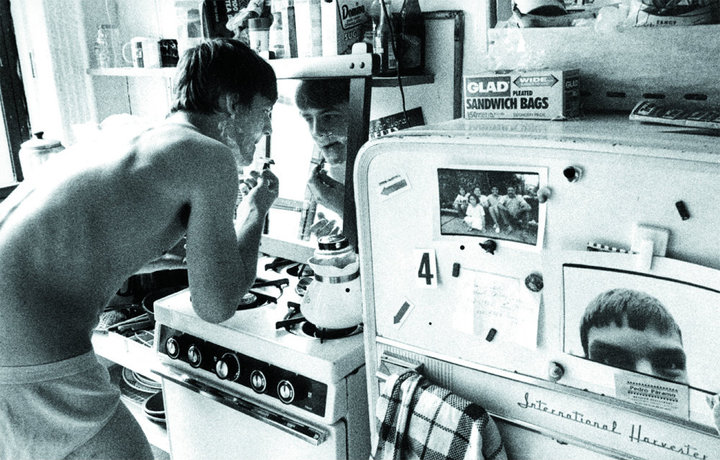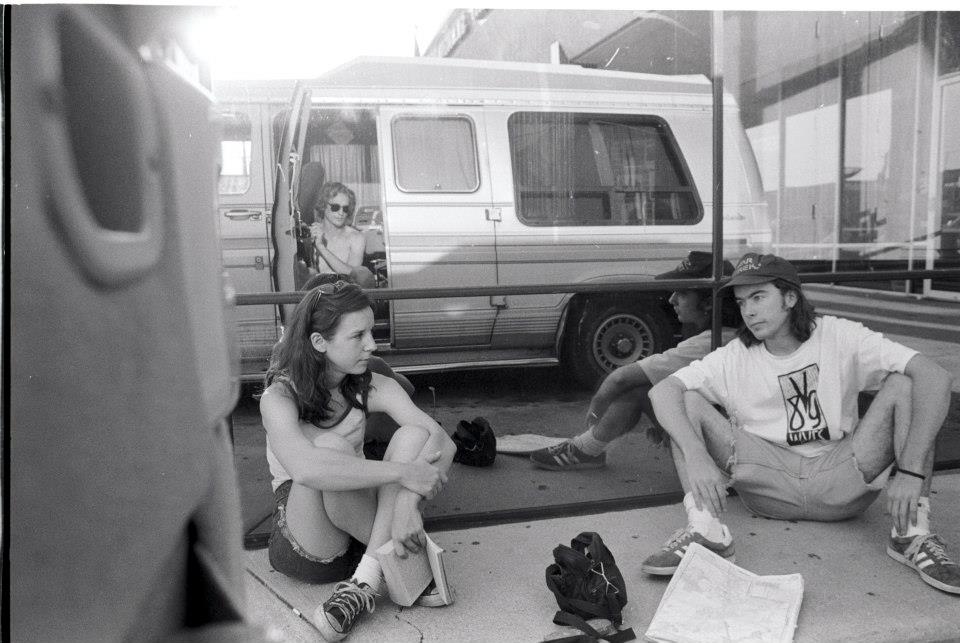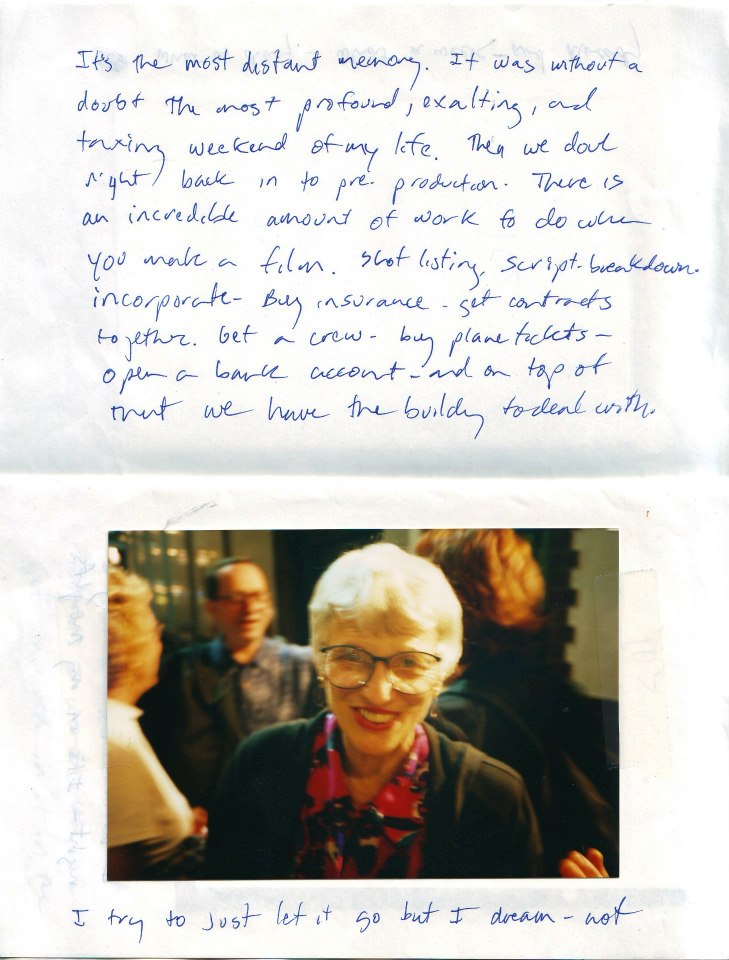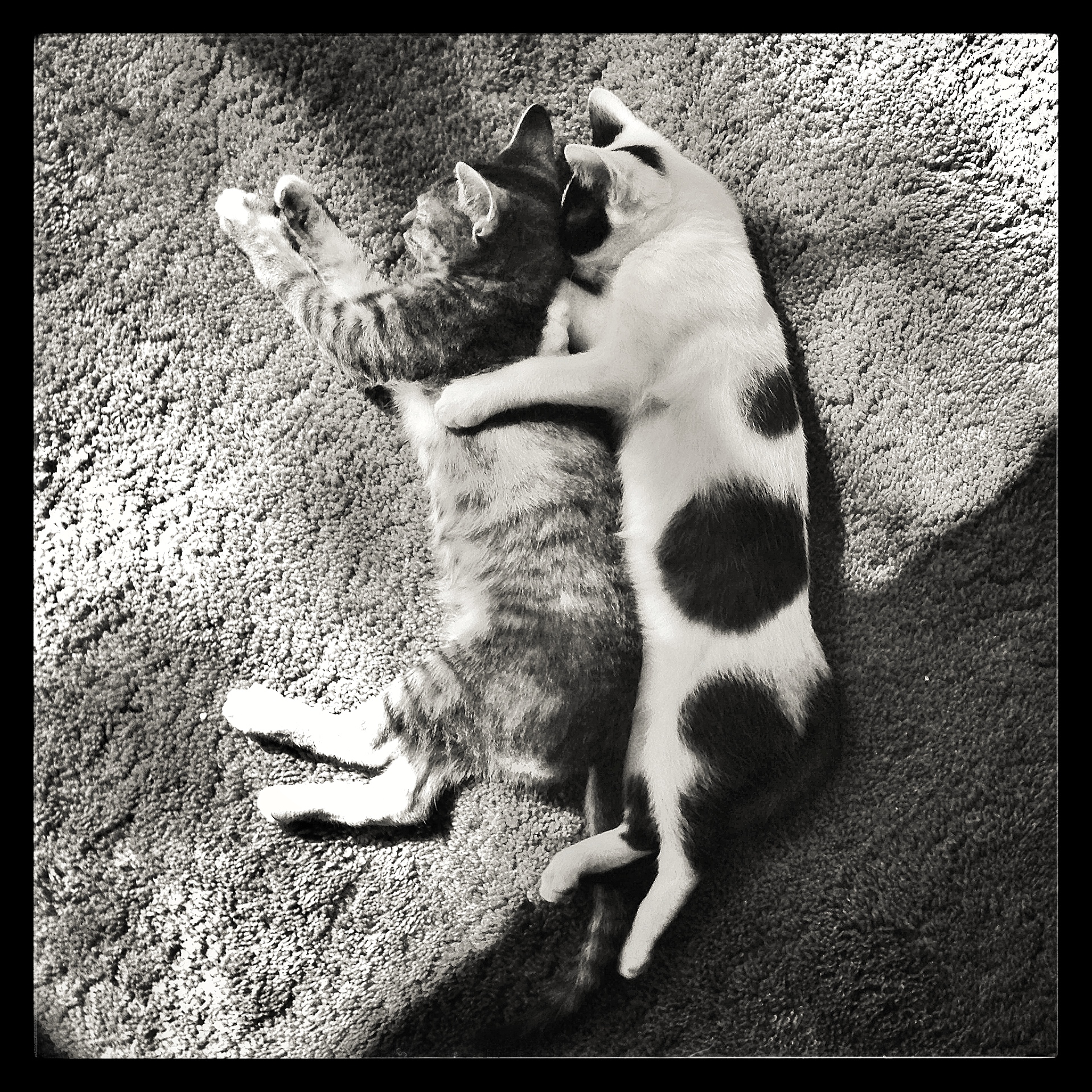10 Nov Vulnerable
For a number of reasons, last week was extremely difficult for me. Various stresses, both conscious and unconscious, began to affect my body in a negative way, and by Wednesday night my left foot was bothering me worse than it had in months. For the past 10 years that’s where my stress has gone, down my left leg and into my foot. It’s my emotional barometer and it let me know, in no uncertain terms, that things were out of balance. Thankfully, I was able to slow down, take stock, and deal with things in a very present way. It wasn’t easy for me to break out of my long established emotional patterns, but it was possible, and satisfying when I saw improvement. By Friday I had been able to reverse the process almost completely.
One of the main difficulties last week was the enormous amount of work that had to be done in order to get prepared for our kickstarter campaign for “All the Rage”. Some aspects of this pressure were immediately aware to me on a conscious level, such as having a long list of emails to write. However, I was also feeling a lot of unconscious pressure which led me to fall into less conscious behavior patterns.
When I was just out of college, freed from the anxiety producing constraints of school, I lived in a small, but incredibly cheap apartment with two friends. At the time I tried to do as little “real” work (ie. work that I did solely for money) as possible. A couple of days a week I worked as a messenger at a production company. I also worked part time as a typist for an animal rights activist. I spent as little money as possible because, more than anything, I wanted time to focus on making art. I used to drink a lot of coffee and work on drawings, paintings, photos, or just reading in a chaotic and intense manner that was exhausting. When I felt bone tired and out of it at the end of the day I felt like I had accomplished something. Conversely, If I didn’t work that hard in a way that left me feeling completely spent, I would feel as if I had failed on some level. I often quipped that despite the fact that I was Jewish I had a very strong protestant work ethic.
I was in a band but didn’t think of myself as a musician. I wanted to be a photographer but I didn’t know how to go about doing that in a way that I felt comfortable with. That is to say, I understood what I was supposed to do, but I couldn’t stand doing things the way they were supposed to be done. I had an idea of what an artist was, but I didn’t think I possessed the innate talent that was invested in that idea. I didn’t really think of myself as an artist, but instead someone who wanted to be an artist. The idea that I wasn’t “good enough” is a clue as to how I felt about myself on an unconscious level. It helps to explain why I felt like I could never work hard enough. I was far from lazy, but each week when I talked to my father on the phone he’d end the conversation with “write when you get work”. It made me livid, but he couldn’t help himself.
I could choose when I went to work as a messenger, so whenever I had enough money saved up I would spend a lot of time at home writing, drawing, and taking photos. On those days I would get up slowly, luxuriating in having the time and space to think without direction. Then I would drink a lot of coffee and work for 6 to 12 hours straight. It wasn’t the kind of work that my father was referring to, but on some level I intuitively understood the importance of this kind of work in terms of learning how to make art.
I would also spend a lot of time and effort doing things like booking tours for my band. This was immensely frustrating process because we had no records out and no one wanted to hear from me. However, I was tenacious, and despite the difficulty, I would push myself to work harder despite the resistance. At the end of the day I might have accomplished very little in real world terms, but I felt satisfied if I felt brain dead and exhausted. I needed to have physical proof that I had worked hard. I was responding to an unconscious pressure to be perfect and good while consciously rebelling against these same ideas. It’s no wonder it caused a bit of a war in my body. While going on tour was difficult in some ways, it also meant that some of my self-imposed work pressure to work hard was lifted.
I continued to work in this manner for many years, rarely making time for rest or relaxation. I never traveled for fun, but instead only if I had some other purpose like going to a film festival or touring with my band. In 2011, when I had my last bout of severe back and leg pain, it came on after I had spent the previous 4 months working non-stop and taking on tons of emotional baggage without respite. At the time I was trying to get our film “Battle for Brooklyn” out into the world, and I dealt with enormous amounts of rejection by working even harder. At one point I was waking several times a night, full of anxious energy. I would write notes and check emails. By the time I hit the floor I had tapped every physical and emotional resource I had. That style of working produced a jolt of adrenaline that was essentially addictive. It felt right even though it clearly wasn’t good for me. Over the last two months of that process my hip and calf muscles had begun to tighten up as I worked. By the time I hit the floor I could barely stand or walk, and I could not calm down. Old patterns die hard, and as soon as I was physically well, I began to fall back into similar, though not as severe, work patterns. This is not to say that I worked with any level of efficiency or order, but instead that I worked with great energy and anxiety.
As I began to heal, I held on to the words of psychotherapist Arlene Feinblatt who had told me to “be good to myself”. I am slowly figuring out what that means. My physical and emotional health have both improved steadily since the summer of 2011. However, I have had my ups and downs and I had a small flare up of this kind of work pattern, leading to a lot of foot pain last fall. At the time I had just begun to meditate and the process helped me to get through that bout, but it took some time. Last week, I dealt with it directly before it got bad.
On Wednesday, I looked at how much I needed to get done and I started to work with anxious speed. I fired off email after email, constantly thinking of more things I needed to add to my list of things that had to get done. Within hours, my foot started to tighten up. I knew what was going on but I worked harder, trying to knock things off my list even as I added more things to do. By that night I had trouble sleeping because the top of my foot was cramping up. I got out of bed, and I meditated for 20 minutes. I was able to calm down, and think about how I had acted automatically rather than presently. I vowed to work differently the following day. I took time to mediate that morning and each time I felt a pang of anxiety about how much we had to get done, I focused on the physical reactions that I was having to those thoughts. I reminded myself to calm down. I also had to really think about the less conscious stresses that the project is putting me.
Over the years I have made a good deal of personal work, but I haven’t done a lot with it. When I was in my 20’s I made a series of “letter books” that I would send to friends. I would tape recent color photos onto folded sheets of paper. Then I would blast out a stream of consciousness note which vaguely referenced the images. Sometimes it was interesting to see what odd connections happened between the images and the words. These were very personal pieces that I didn’t plan to share with anyone other than the recipient at time. However, I always felt like they would have more meaning in the future and I would be less connected to the personal nature of writing. Now I have to deal with these issues in the present on a potentially much larger scale. This is the first film we’re making in which I am a character. There’s something scary about presenting oneself with nakedness, warts and all. The subject of the film is challenging enough as it is. I’m not so conscious of it but making myself vulnerable in this way is clearly making me a little anxious. As such, I have to be sure to pay attention to that.
While the preparation for our kickstarter was difficult I also was recovering from a long weekend at a film festival (that required a lot of juggling to make sure our kids were comfortable). In addition I had brought our two female cats to the shelter to get spayed and it did not go well. I feel somewhat silly in talking about how stressful it was to get the cats fixed, or dealing with my kids anxieties, but it was. The combination of these various stresses, some that I was aware of, and some less so, can bring on the pain.
When I gathered the cats up to take them to the shelter for the procedure they were curled up together in a ball as they often are. However as soon as I put their cardboard cat box in the car they became very stressed out. By the time I got them to the shelter they were clearly distressed. When we had chosen the kittens a couple of months earlier they were sharing a cage, so I suggested that they be placed together.
I figured that they would be a comfort to each other, but it seems that the stress of the situation made them turn on one another. When I picked them up the next day to take them home they were hissing and wailing in their box. I quickly opened it a little to pet them and they both bounded out. It was not an easy ride home; one climbed on my head and the other by the brake pedal. They were freaking out. When I got them in the house they were extremely wary of each other in a way that shocked us. When they did come close they hissed and swung at each other. I assumed that the anesthetic had something to do with it, but we were nervous that things would not get back to normal. I called the shelter and was told that they had been fighting. Stress can turn lovers into enemies, and I feared the worst. We did our best to keep them separate for a while. That seemed to help. When they were hurt and vulnerable they needed space.
Having just interviewed Ram Dass, I tried to think of the present moment, but I still imagined a terrible future with two cats that hated each other. I concentrated on the dangers, and uselessness, of this kind of negative future projection, and I was able to slow it down. It also helped that I got a lot of advice from friends assuring me that after the vet smell wore off they would get back to normal. It’s taken a few days and now they are much better and so am I.
I learned a lot from thinking about how the cats reacted to their stress. They were wary and less trusting, which also made them less trustworthy to each other. Their relationship was thrown out of balance. The same is true for us humans. Our relationships with others, and ourselves, thrive when we are able to be vulnerable. Yet when we are too vulnerable we can make people uncomfortable. Finding a balance between these two poles can be difficult, but when its struck we find a certain kid of harmony.
Ben Crane spoke to this point with great eloquence when I interviewed him for “All the Rage” a couple of weeks ago. He talks of the importance of being vulnerable with other people in relation to healing. I was with a good friend last night and she told me that she noticed that I tend to “over analyze” in this blog space. It wasn’t a criticism as much as an observation. I understand what she means, but in some ways I’m also pushing the bounds of what it means for me to be vulnerable, and it helps me to work out ideas for our film. I’m also trying to push at the rules of telling stories. As an example, I struggled with whether or not to discuss the cats, because the “real story” here is the kickstarter stress. However, the truth is, the anxiety produced by dealing with my cats added significantly to the difficulty of my situation. This story would be “cleaner” without them, but then that anxiety would exist in a vacuum. I do think a lot, and perhaps over think many things. Yet it is through making sense of my past, both distant and not so distant, that I am able to be more aware in the present. If we can’t see the patterns we can’t change them. At the same time, the writing that I do here is part of a practice of learning to be honest, and vulnerable, without going over the line. We need to be vulnerable to heal, and we need space to be vulnerable- just ask my cats.





jenny toomey
Posted at 16:46h, 11 NovemberLoved reading this. Totally get the cat story and it brought up a similar experience I had when we saved a feral (ish) dog from a hoarding situation. We’d been hoping to get a mature dog to live with our other already mature dog who had serious separation anxiety. From the moment we went to the “shelter” we saw that this was a very intelligent woman’s mental illness playing out in over a dozen open pens of dirty underfed, mangy dogs drinking out of filthy paint buckets, She thought she was “saving” them and seemed unaware of the hellish scene which surrounded us. We took pity on one pooch with personality and even though we knew he wasn’t house or leash trained (as we’d been told) as he’d never been in a house or on a leash. We paid for him and left. It was late and we couldn’t get all the way home from rural Pennsylvania, so we stopped at a motel where we washed the dog for the first time with shampoo from a gas station. He howled with fear. When we tried to go to bed my first dog just stood at eye level staring at me with displeasure. When would this other dog leave? What was he doing here? I eventually moved from the bed I was sharing with Brian to a separate bed where I unsuccessfully tried to comfort this first dog while the new dog tried to join us. There are many other twists and turns to this story which is actually hysterical at a party, but cutting to the chase here…. by the time I brought the dogs home the next day and saw how unhappy they still were, one of them terrified of mirrors and stairs and peeing all over the house and one of them staring daggers of betrayal at me… I just broke down. I thought… we went through all of that and now I’m going to have to put this poor dog in a shelter here in DC. I felt like the worst person in the world. This is a piece of your story that didn’t come out in how you told it so maybe it’s my projection, but there is something in the “responsibility” and the “inability to fix” and the “inability to communicate” that has a gravity beyond “mistake” but feels existential. It feels like you are worse than worthless. Not sure if that played a part in the acuteness of your feeling re the cats or if you really just felt a distanced sadness for the way we turn on one another when we are hurt? The section of your blog when you talk about the necessity of vulnerability in relationships really resonated for me and there was another missing piece. You said you ” learned a lot from thinking about how the cats reacted to their stress. They were wary and less trusting, which also made them less trustworthy to each other. Their relationship was thrown out of balance. The same is true for us humans. Our relationships with others, and ourselves, thrive when we are able to be vulnerable. Yet when we are too vulnerable we can make people uncomfortable.” All this is true but it doesn’t also reveal the obvious fact that when we are more vulnerable we are more vulnerable and we can be hurt…by cat doctors and by people. These defense mechanisms that are fucking things up are not vestigial and getting the balance correct isn’t just about folks comfort levels it’s about safety and survival. Which is why the patterns run so deep and reoccur so much. Thanks for the opportunity to procrastinate here on a holiday when I was planning to work.
Megan
Posted at 23:29h, 04 DecemberI’ve just recently discovered Dr. Sarno and your film and I’m thrilled and terrified all at once to address all of the emotions that have led to 5 years of back pain. Your posts are great! I know I need to process through things that my high-functioning, responsible self thinks are trivial, minor, not worth burdening anyone about. I think a large part of my identity is being able to handle all my own “shit” stoically so that I’m not a burden to others. At the same time, I pride myself in being an excellent mother, friend, wife by trying to always have time, empathy and compassion for everyone else’s issues, big and small. So I am noticing the guilt and shame that comes with trying to identify all the stuff that stresses me out, makes me angry and resentful, or causes me sadness and stress. Your posts model both the importance and effectiveness of doing so. And I know I need to go there in order to heal the back pain. Thanks for this. Can’t wait to see the film (no pressure!).